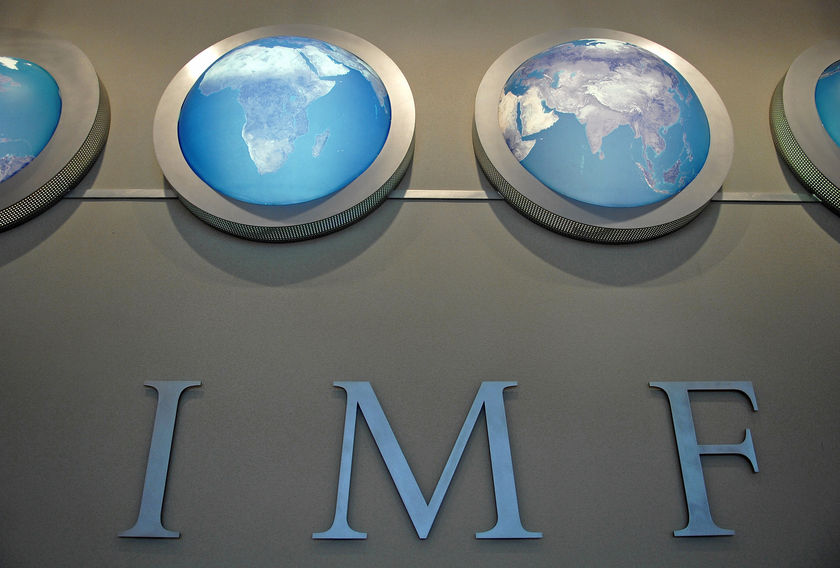IMF welcomes recovery, but sees growth prospects subdued in Hungary

The Hungarian economy is recovering steadily helped by supportive macroeconomic policies and improved market sentiment, the International Monetary Fund (IMF) said yesterday in its 2015 Article IV Consultation-Staff Report on Hungary.
There has been a welcome decline in vulnerabilities but debt levels remain elevated, leaving the economy prone to shocks, and medium-term growth prospects appear subdued, the IMF added.
External and public debt levels remain high and the associated financing needs together with heavy reliance on nonresident financing, large concentration of the investor base, and the economy’s large open forex position continue to pose risks. Hungary’s subdued medium-term growth prospects further exacerbate these vulnerabilities. At the same time, the state’s increased role in the economy along with sectoral taxes weaken the business environment, while state acquisitions in the banking and energy sectors contribute to the buildup of contingent liabilities, the IMF said.
Published yesterday, the report was completed on March 11 based on discussions IMF staff ended in Budapest on January 30. Hungary is on a 12-month consultation cycle since it repaid early its obligations to the IMF in 2013 under a stand-by programme started in 2009.
The Hungarian government took steps to address these challenges, but the overall strategy relies on measures that increase the role of the state in the economy and shift the burden of the adjustment to specific sectors. This may deter private domestic and foreign direct investment, the staff report said.
The IMF now expects growth in Hungary to decelerate to 2.75% this year (from 3.6% last year), to 2.3% next year, and to 2.2% in 2017 on account of a smaller domestic-demand impetus due to less supportive fiscal stance and lower investment growth, given he projected decline in EU funds. Private consumption is expected to continue to grow, reflecting lower household indebtedness, accommodative monetary conditions, and higher employment. Over the medium term, output growth is set to stabilize at around 2%, IMF staff said, noting that he Hungarian authorities "were more optimistic about Hungary’s medium-term growth prospects."
Against the backdrop of continuing private sector credit contraction the IMF recommended that policies should aim at further reducing vulnerabilities and comprehensively tackling impediments to strong, private sector-led growth. Low levels of foreign direct investment may also detract from Hungary’s medium-term growth prospects, it said.
The IMF said the real exchange rate of the Hungarian forint is broadly in line with fundamentals, but non-price indicators suggest that Hungary faces competitiveness challenges.
IMF staff’s projections suggest that headline inflation will likely remain below target for an extended period, but further cautious monetary easing would help guard against persistent disinflationary pressures, it said. It now sees headline annual average inflation at zero this year after minus 0.3% last year, with the medium-term official target of 3% attainable in 2018 only.
Hungary should adopt a growth-friendly fiscal consolidation strategy to rebuild room for policy manoeuvre and sustainably reduce the public debt ratio, the IMF said, welcoming the authorities’ commitment to fiscal consolidation, but noting that their current strategy falls short of reducing public debt significantly over the medium term. It noted, however, that the external debt remains sustainable under a range of shocks.
The IMF now projects the 2015 general government deficit at 2.7% of GDP versus a budget target of 2.4%, and 2.5-2.5% of GDP bot next year and in 2017, with gross debt decreasing to 75.5% of GDP this year from 76.9% last year. It sees 74.7% for next year, and 73.9% at the end of 2017.
It recommended a simplification of the tax system, including a gradual elimination of distortionary sectoral taxes.
It also advised to strengthen efforts and follow up on recently-announced commitments to repair financial intermediation by improving the operating environment for banks. Steps should include facilitating faster cleanup of bank portfolios and reducing the tax burden on banks. The Funding for Growth Scheme of the National Bank of Hungary (MNB) aimed at SMEs should remain targeted and time bound, while the role of the state in the banking sector should be contained, the IMF said.
The international lender also recommended structural reforms that increase policy predictability and reduce state interference in the economy to help strengthen confidence and support private investment.
SUPPORT THE BUDAPEST BUSINESS JOURNAL
Producing journalism that is worthy of the name is a costly business. For 27 years, the publishers, editors and reporters of the Budapest Business Journal have striven to bring you business news that works, information that you can trust, that is factual, accurate and presented without fear or favor.
Newspaper organizations across the globe have struggled to find a business model that allows them to continue to excel, without compromising their ability to perform. Most recently, some have experimented with the idea of involving their most important stakeholders, their readers.
We would like to offer that same opportunity to our readers. We would like to invite you to help us deliver the quality business journalism you require. Hit our Support the BBJ button and you can choose the how much and how often you send us your contributions.








